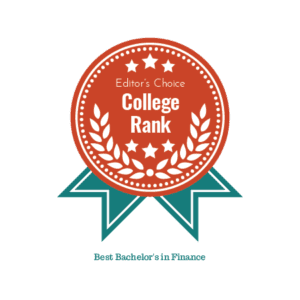MASTER OF SCIENCE IN COUNSELING
Purpose
The mission of this program is to prepare persons for careers in counseling. The Clinical Mental Health Counseling, Addiction Counseling, and School Counseling tracks all lead to eligibility for licensure as Professional Counselors (LPC). The School Counseling track also leads to eligibility for PK-12 school counseling certification, and those in the Addiction Counseling track will be eligible for licensure as Alcohol and Drug Counselors (LADC).
Student Learning Outcomes
Student learning outcomes are aligned with the Council for Accreditation of Counseling and Related Educational Programs (CACREP) standards. These outcomes, articulated as key performance indicators (KPIs) are detailed in the Counseling Key Performance Indicators document.
Clinical Mental Health Counseling. All of the emphasis courses in the Master’s of Science in Counseling: Clinical Mental Health Counseling option meet the academic requirements to become a Licensed Professional Counselor in the State of Oklahoma (https://www.ok.gov/behavioralhealth/). A list of requirements can be found on the Oklahoma State Board of Behavioral Health web page under Acts and Regulations. Each applicant for the LPC licensure will take and pass a written exam according to State Board of Behavioral Health. The counseling program’s exit exam is designed to prepare students for the National Counselor Exam (NCE). The exit exam covers the same eight core subject domains. Clinical Mental Health Counseling students who wish to pursue the LADC licensure are required to complete an additional 12 credit hours of addiction counseling courses in order to meet state requirements.
School Counseling. All of the emphasis courses in the Master’s of Science in Counseling: School Counseling option meet the academic requirements to become a certified PK-12 school counselor in the state of Oklahoma. Licensing and credentialing varies by states as there is not currently a national license or certification for school counseling. The American School Counselor Association lists the credentialing requirements per state at the following website: https://www.schoolcounselor.org/school-counselors-members/careers-roles/state-certification-requirements. Each applicant for the Oklahoma School Counseling certification will take and pass the following exams offered by the Oklahoma Office of Educational Quality and Accountability (840 Research Parkway, Suite 455, Oklahoma City, OK 73104, 405-522-5399), www.ok.gov/oeqa: (1) The Oklahoma General Education Test [OGET]; (2) Oklahoma’s Subject Area Test in school counseling [OSAT]; and (3) Oklahoma Professional Teaching Exam [OPTE]. Students also leave the program with all the necessary course requirements in order to sit for the National Counselor Exam and to pursue licensing as a Licensed Professional Counselor.
Addiction Counseling. All of the emphasis courses in the Masters of Science in Counseling: Addiction Counseling option meet the academic requirements to become a Licensed Alcohol and Drug Counselor (LADC) and Licensed Professional Counselor (LPC) in the state of Oklahoma (http://www.okdrugcounselors.org). A list of requirements can be found on the Oklahoma State Board of Alcohol and Drug Counselors (OSBADC) web page under the link Basic Requirements. The OSBADC establishes the state examination requirements to become an LADC (Title 38; Senate Bill 1277) based on standards established by the International Certification and Reciprocity Consortium (IC&RC). Each applicant for the LADC licensure will take and pass written and oral examinations according to State Board standards. The counseling program’s exit exam is designed to prepare students for the National Counselor Exam (NCE). The exit exam covers the same eight core subject domains.
The M.S. in Counseling degree program is a cohort program. In order to take Counseling graduate courses, the student must be admitted to the M.S. in Counseling degree and MUST complete courses in the sequence listed on their degree plan. Any exceptions must be approved by the Department Chair.
Non-degree seeking students may not take any “clinical” (i.e., Group Process, Practicum I, Practicum II, and Internship) courses and enrollment in all other courses is contingent on space availability and prior approval of the Department Chair.
Counseling, M.S. - 60 hours
Counseling Core - 39 hours
Master of Science in Counseling includes a core of 39 required hours and three areas of emphasis: Clinical Mental Health Counseling, Addiction Counseling, and School Counseling.
- COUN 5033 - Professionalism and Ethics
- COUN 5053 - Assessment & Statistics
- COUN 5163 - Counseling Theories
- COUN 5273 - Clinical Psychopathology
- COUN 5283 - Career Development
- COUN 5413 - Methods and Techniques of Counseling
- COUN 5443 - Diversity Issues in Counseling
- COUN 5473 - Marriage and Family Therapy
- COUN 5603 - Practicum I
- COUN 5653 - Advanced Lifespan
- COUN 5693 - Psychopharmacology: Dual Diagnosis
- COUN 5713 - Group Process
- COUN 5903 - Counseling Research
Addiction Counseling (6141) 21 hours
In addition to core Counseling courses, those seeking preparation to be addiction counselors should take the following courses:
- COUN 5173 - Foundations of Addiction Counseling
- COUN 5183 - Addiction Counseling Theories
- COUN 5573 - Family Addiction Theory
- COUN 5583 - Addicted Family Assessment & Intervention
- COUN 5673 - Practicum II for Addiction Counseling
- COUN 5820 - Internship in Addiction Counseling (6 hours total)
Clinical Mental Health Counseling (6142) 21 hours
In addition to core Counseling courses, those seeking preparation to be clinical mental health counselors should take the following courses:
- COUN 5133 - Foundations of Clinical Counseling
- COUN 5613 - Personality Assessment
- COUN 5723 - Counseling Supervision
- COUN 5733 - Practicum II for CMHC
- COUN 5800 - Internship in Counseling (6 hours total)
Students will complete one of the following elective courses:
- COUN 5183 - Addiction Counseling Theories
- COUN 5513 - Child and Adolescent Counseling
- COUN 5523 - Childhood Assessment & Appraisal
School Counseling (6143) 21 hours
In addition to core Counseling courses, those seeking preparation to be school counselors should take the following courses:
- COUN 5153 - Foundations of School Counseling
- COUN 5513 - Child and Adolescent Counseling
- COUN 5523 - Childhood Assessment & Appraisal
- COUN 5643 - Practicum II School Coun
- COUN 5840 - Internship in School Counseling (6 hours total)
Students will complete one of the following elective courses:
- COUN 5573 - Family Addiction Theory
- COUN 5583 - Addicted Family Assessment & Intervention
Thesis (optional)
The thesis is an option with all emphases.
- COUN 5920 - Thesis (3 hours total)
Degree Available At
- Tahlequah
- Broken Arrow
Starting Your NSU Journey?
Make your transition to NSU as smooth and seamless as possible.
Visit our Graduate College Checklist for more information.
Career Services
What Can I Do With A Major in Counseling?
Program Chair:

Program Requirements
- Resume/Vitae
- Cover Letter
- 3.0 GPA
- 2 References
Application Deadline
- Fall Semester - December 15th for following Fall Semester
*Fees include: facility fee, student activity fee, infrastructure fee, cultural/scholastic lecturer fee, student ID fee, technology services fee and remedial course fee, if applicable. NSU courses taught at off campus locations or online might have additional fees assessed. These totals are tuition and fee estimations per program based on the current catalog year. Books, supplies and some fees may not be included.


